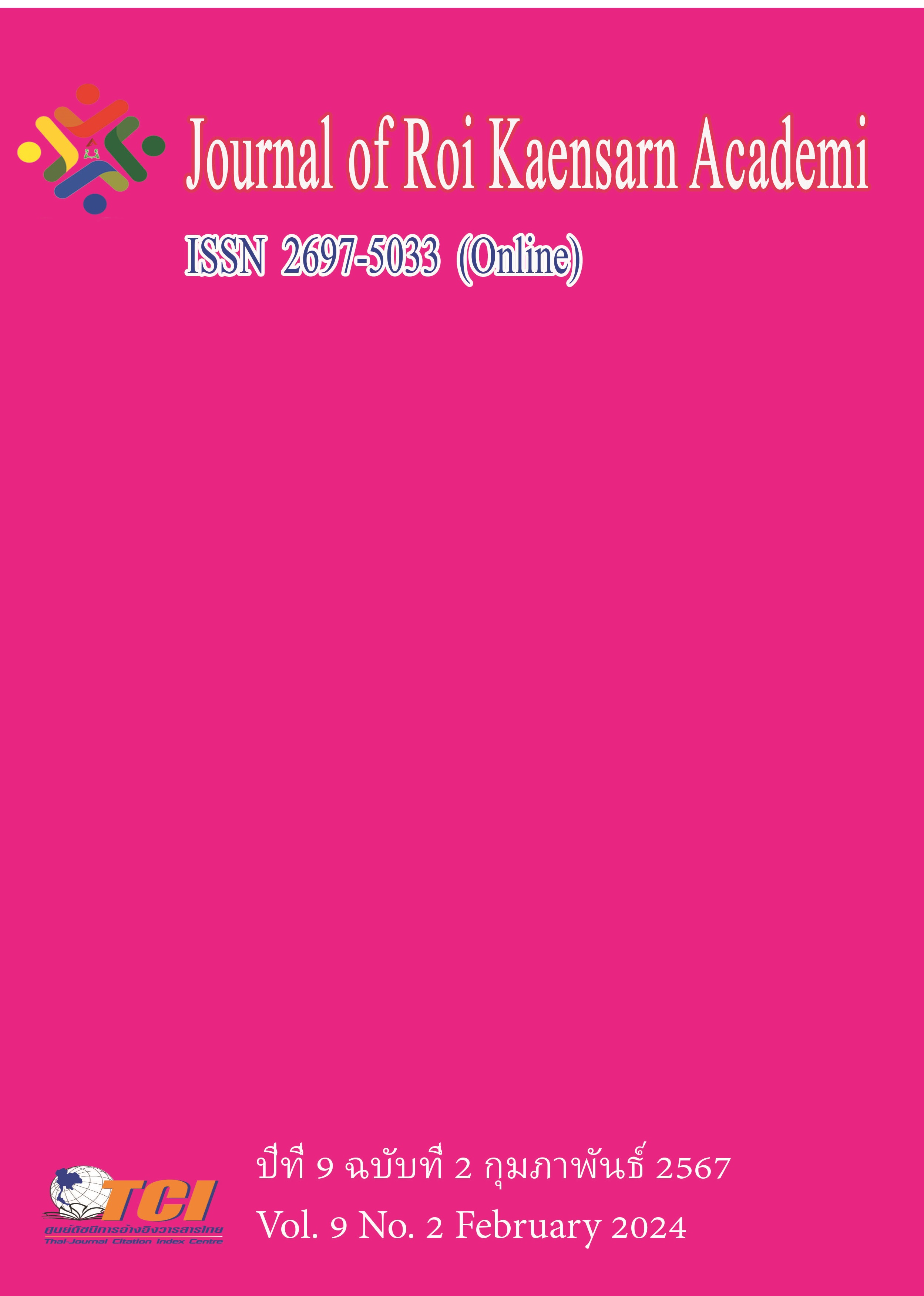The Parents’ Satisfaction With Food Management: A Case Study of QianDe Kindergarten
Main Article Content
บทคัดย่อ
The objectives of this research are: 1) to study the level of parental satisfaction with the nutrition management of Qiande Kindergarten 2) To compare parents' satisfaction with Qiande Kindergarten nutrition management. Based on parents' personal information, including gender, age range, education level, data collected with the population who are parents of Qiande Kindergarten students. In 2023, the number is 170. The research instrument is a 5-level estimation scale questionnaire (scoring criteria) with a total confidence value of .97. Testing research hypotheses using t-Test Independent test statistics and One-Way ANOVA test statistics, when statistically significant (p < .05) is found, a pair comparison is performed using the Scheffe' test method.
The results of the research were as follows:
1) Parents' satisfaction with Qiande Kindergarten nutrition management is at a high level. The average value was 3.81 when considering each aspect and found that service and location management had the highest value at a large level. It has an average value of 3.82, followed by container and equipment management at a high level. It has an average of 3.81 in food management and personnel management. The average value is 3.80.
2) Parents of male students Parents of female students Parents of different ages and parents with different levels of education There was no difference in satisfaction with the food management of Qiande Kindergarten, overall and in each aspect. The areas include food management Service and location management Handling containers and equipment and personnel management.
Article Details
เอกสารอ้างอิง
Cullen, Rowena. (2001) Cullen, Rowena.“Perspectives on user Satisfaction Surveys”. Library Trends. 49(Spring) : 602-686.
Daniel, U.L. & Rayna, F.L. (1996). Home Environment, The Family and Cognitive Development Society and Education (9th ed.). New York: Simon & Schuster.
Fisher, E.A. (1991). Early Childhood Care and Education. (EECE): A world survey, UNESCO
Gulick, Luther and Lyndall Urwick. (1973). The Science of Administration. New York: Columbia University
Liu Yingying, He Yongqin. (2011). Preschool Nutrition [M]. Shanghai: Fudan University Press, 2011.
Morrison, Grorge S. (1998). Early childhood education today. 4th ed. Toronto: Merill Publishing Co.
Robbins & DeCenzo. (2004), Certo. (2003). Retrieved December 18, 2022, from http://www.gotoknow.org/posts/447935
Victoria C G,Adair L,Fall C,et a.( 2013 )

